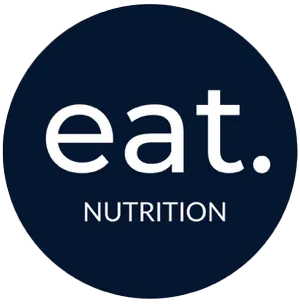Spring has sprung and all that. We’ve all been there and know the drill…
😬 Oh bugger, it’s nearly summer and the body needs to come out of hibernation soon.
💉 A text arrives from the nurse at the GP clinic “your cholesterol has come back high, try and reduce this with diet and exercise”.
🎄 Note to self – I’m going to get fit and healthy by Christmas.
So, it’s time to get stuck in and make some sweeping lifestyle changes to prepare for summer, or while on holiday, or when there’s some spare headspace. But despite all the best intentions, real life, routines, busy-ness and demands are there, and the healthy habits start to slip. Back to the old normal and previous habits. Why does this happen and what strategies can be put in place to help healthy habits stick?
Caveman Brain
Our brain hasn’t really evolved from caveman days. It is not wired for change. It looks for consistency and pattern to keep us safe from danger. This was a protective mechanism to guard us from saber-tooth tigers and the like back in caveman days. Unfortunately, this “protective” mechanism can get in the way of making long-term health changes in modern life (even if the new habit is healthier and therefore “safer” than what we’ve previously been doing!).
The Blame Game
Then people blame themselves for being unable to keep up with new, healthy behaviour changes.
“I have no willpower”
“I can’t stick with healthy habits, I’m just greedy/lazy”
“It won’t matter that I have a couple of extra biscuits/chippies/cheese and crackers/wine…I’ve wrecked the diet now, so I may as well finish the packet/bottle”
But it’s not necessarily down to greed, laziness or lack of willpower. It’s the built-in, protective biological mechanism that can make it harder to stick to new patterns of behaviour. Remember, the brain is not wired for change. But we can override this.
So, What Helps?
Here are 6 proven strategies I routinely use with my nutrition clients to help healthy habits stick:
1 Small and consistent tends to win the day. Small changes (eg adding in a piece of fruit to your day, drinking an extra glass of water, snacking on some nuts) rather than massive sweeping changes that no one can adhere to tend to be more sustainable. And doing the actions regularly and consistently (which isn’t too hard as they are small).
2 Remove the friction. What do you need in order to action your change? Keep your sports shoes by the front door so you remember to take them with you to work? Diarise your exercise class rather than leave it to chance? Buy in eggs, berries, Vogels, Greek yoghurt etc so you’re good to go with healthy breakfast options? Cook extra the night before so you’ve got leftovers for lunch? We want to make the change as easy as we can to do it (some discipline will still be needed but it definitely helps to remove as much friction as possible).
3 Apply the change. Don’t wait until Monday, until the 1st of January, until you have your sh*t together. Just do it now, even if it’s messy. Go for the walk this morning. Make the healthy lunch. Drink the green tea at afternoon tea. Start today…you don’t need to do any more research on it or overthink it.
“Knowledge is not necessarily power, BUT the application of that knowledge is power”
4 Have a plan to follow. When we have a plan of what to do each day it’s easier for our brain to accept the change. That’s why hundreds of people have benefited from my 21 Day Nutrition Reboot. It’s a plan for them to follow. The changes are small and consistent. There is a time to plan/shop/prepare. There is even a tick chart to tick off the actions which benefits the brain by releasing dopamine (a “feel-good” neurotransmitter), creating a sense of accomplishment and motivation, and reducing mental clutter. You can get your copy of the Reboot here.
5 Make it positive. Rather than restriction, denial, dieting or punishing exercise changes, consider some positive additions. What can you add in, rather than takeaway? Some chia seeds at breakfast? Some salmon at lunch? A handful of spinach at dinner? It’s way more generous, plentiful and kind. This Positive Nutrition philosophy is what I use with my individual clients to support them for sustainable wellbeing benefits. (You can find out more about individual nutrition support here if this sounds like what you need.)
6 WIIFM. The “What’s In It For Me (WIIFM)”. Why will you benefit from making the change? What will it allow you to do? Get off the floor more easily? Feel more comfortable in your body and clothes? Be around for your kids and grandkids in years to come? Reduce the risk of lifestyle diseases (eg type 2 diabetes or heart disease)? Getting clear and concise on your WIFFM can be powerful in keeping you motivated and disciplined.
Where to from here?
So, there you have it. 6 proven strategies to help make healthy habits stick. I’ve included all of these strategies in my 21 Day Nutrition Reboot e-book to help you make healthy changes more simply, easily and for the long term. You’ve got this 👊


